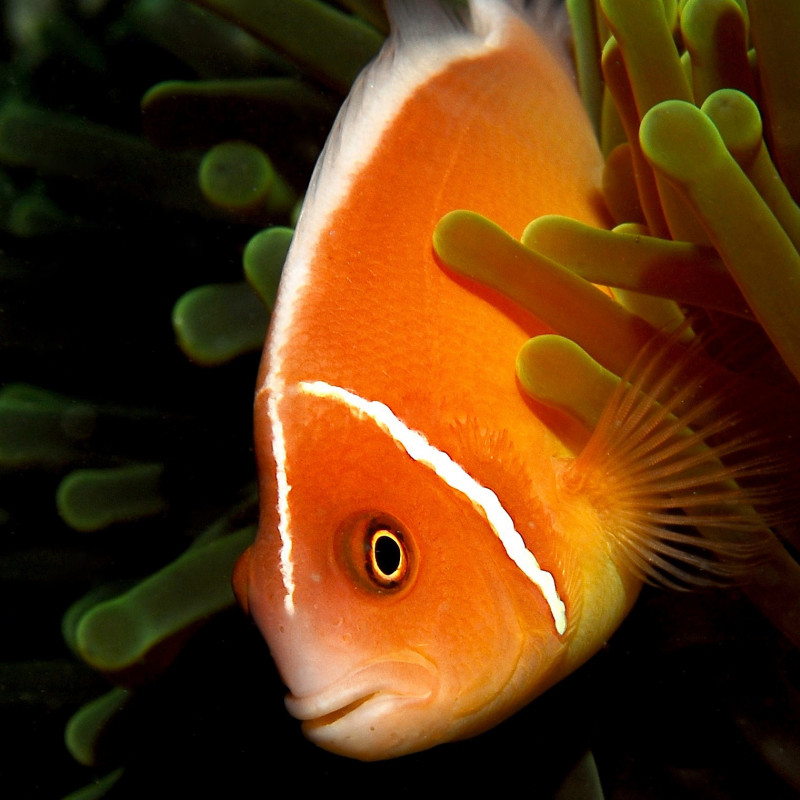More info
Amphiprion perideraion - Skunk Clownfish
Amphiprion perideraion Tank Bred
The captive-bred Pink Skunk Clownfish, also known as the Pink Skunk Anemonefish or False Skunk-striped Anemonefish, has a peach-orange base color with a white stripe behind the head that runs from the nose and down the entire length of the back. Another contrasting white band is located just behind the eyes.
Captive-bred fish have a unique advantage over wild species in that they are generally very hardy and more accustomed to the conditions found in the home aquarium. Therefore, captive-bred fish are a great choice for beginners and experienced aquarists.
The captive bred Pink Skunk clownfish is a little more challenging to spawn and breed than other clownfish species in the home aquarium, but with some effort it can be accomplished by the dedicated marine aquarist. The females will be the largest of the couple and the two fish will usually be close to each other in the aquarium. Clownfish are oviparous and lay their eggs on a flat surface and defend the eggs from other co-inhabitants in the aquarium. Eggs typically hatch in 8-11 days, depending on water temperature. The fry should be raised in a separate aquarium on a diet of rotifers followed by baby brine shrimp. Post-metamorphic juveniles will exhibit strong shoaling or "ball" behaviors that may continue into adulthood.
Care Level: Moderate
Temperament: Semi-aggressive
Color shape: Pink, white
Diet: Omnivorous
Compatible in Recife: Yes
Water Conditions: 22-26 °C, dKH 8-12, pH 8.1-8.4, sg 1.020-1.025
Max Size: 10cm
Origin: Raised in Captivity // Tank Bred
Family: Pomacentridae
Minimum Aquarium Size: 100L


